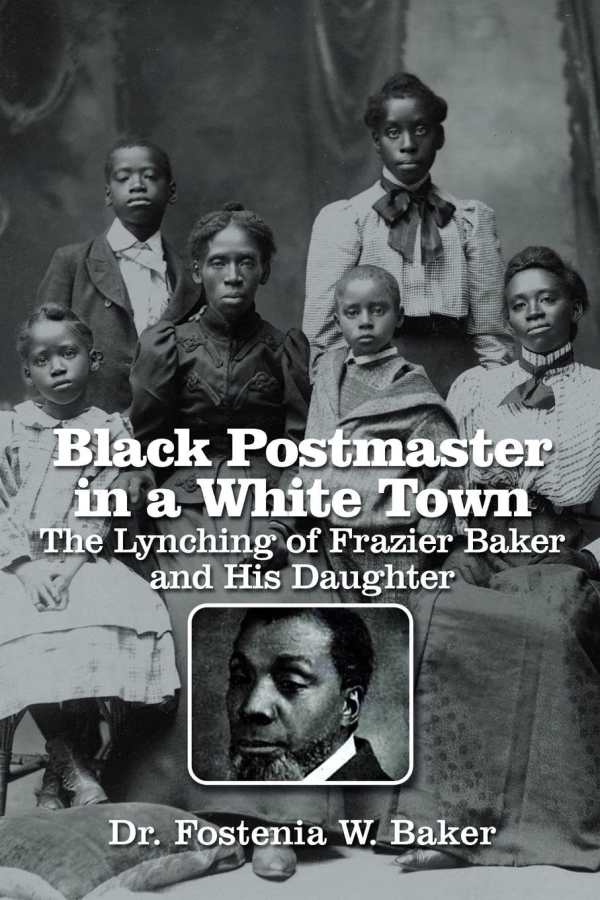Black Postmaster in a White Town
The Lynching of Frazier Baker and His Daughter
A thorough biography-cum-true-crime book, Black Postmaster in a White Town reports on an overlooked nineteenth-century atrocity that affects the victims’ descendants to this day.
Fostenia W. Baker’s biography of Frazier Baker, Black Postmaster in a White Town, recounts his brief career as a federal official—and his horrific murder.
Frazier Baker was appointed postmaster of Lake City, South Carolina, in 1897. Trouble began almost immediately: not only did white residents go out of their way to avoid interacting with Baker, they made repeated attempts to harm him and his associates. In February of 1898, they succeeded, killing both Frazier and his infant daughter. This act of senseless, race-based violence devastated the Baker family and left a dark stain on the community that the book says has never been acknowledged or rectified in full.
While heinous in and of itself, the lynching of Frazier and his daughter was far from an isolated incident. Thus, the book places the event in its historical context, discussing other lynchings that occurred in the region around the same time, as well as the fruitless efforts of activists including Ida B. Wells-Barnett to end the killing. It puts forward the convincing argument that by learning about and acknowledging the crimes that haunt the US’s past, it is possible to prevent the recurrence of racist violence—even to heal from it in some way.
Drawing on historical documents and family stories, the book reconstructs pivotal events from Baker’s life. It builds an image of a principled family: in the face of credible threats, Baker refused to leave his position; his wife Lavinia testified against the murderers in federal court before moving her surviving children to another state. No-frills prose relays the facts of the matter, alongside occasional, brief speculations about what the Bakers might have thought or felt at the time. Contemporaneous news reports are also used to shed light on the trial of Baker’s killers, which ended in no jail time for anyone. Occasional photographs and images are also included to illuminate the book’s important people and locations. But some of this information repeats, including exact quotes, and some backtracking is involved in the book’s progression.
Revealing that it took over a century for South Carolina to acknowledge the harm done to the Bakers, the book notes that the federal government has yet to offer reparations, apologies, or even payment for Baker’s services as postmaster. Its abrupt ending is followed by voluminous appendices that include information such as the history of the US’s mistreatment of Black people and a list of the earliest Black postal workers. However, these appendices are disorganized and contain some information that has only a tenuous link to the book’s subject matter.
A humane true-crime book, Black Postmaster in a White Town covers a historical lynching to illuminate broader issues of racism, violence, and injustice in the US.
Reviewed by
Eileen Gonzalez
Disclosure: This article is not an endorsement, but a review. The publisher of this book provided free copies of the book and paid a small fee to have their book reviewed by a professional reviewer. Foreword Reviews and Clarion Reviews make no guarantee that the publisher will receive a positive review. Foreword Magazine, Inc. is disclosing this in accordance with the Federal Trade Commission’s 16 CFR, Part 255.

